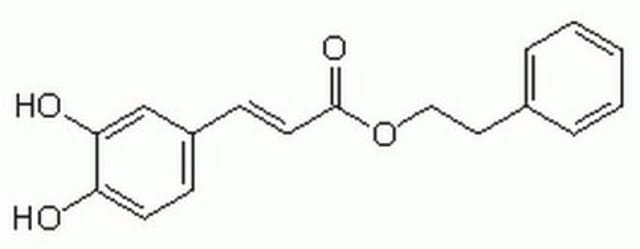V4765
Valnoctamide
≥98% (NMR)
Synonym(s):
2-ethyl-3-methyl-pentanamide, Axiquel, Nirvanil
About This Item
Recommended Products
Assay
≥98% (NMR)
form
powder
storage condition
desiccated
color
white to off-white
solubility
DMSO: 20 mg/mL, clear
storage temp.
room temp
SMILES string
CCC(C)C(CC)C(N)=O
InChI
1S/C8H17NO/c1-4-6(3)7(5-2)8(9)10/h6-7H,4-5H2,1-3H3,(H2,9,10)
InChI key
QRCJOCOSPZMDJY-UHFFFAOYSA-N
Application
- as a mood stabilizer to study its anti-cytomegalovirus (anti-CMV) effects in newborn mice brain
- as a hypnotic sedative to study its cytotoxic effects on oligodendrocyte precursor cells (OPCs) and human oligodendroglioma cell line (HOG)
- as a mood stabilizer to study its effects on inhibition of human cytomegalovirus
Biochem/physiol Actions
Features and Benefits
Signal Word
Warning
Hazard Statements
Precautionary Statements
Hazard Classifications
Acute Tox. 4 Oral
Storage Class Code
11 - Combustible Solids
WGK
WGK 3
Flash Point(F)
Not applicable
Flash Point(C)
Not applicable
Certificates of Analysis (COA)
Search for Certificates of Analysis (COA) by entering the products Lot/Batch Number. Lot and Batch Numbers can be found on a product’s label following the words ‘Lot’ or ‘Batch’.
Already Own This Product?
Find documentation for the products that you have recently purchased in the Document Library.
Our team of scientists has experience in all areas of research including Life Science, Material Science, Chemical Synthesis, Chromatography, Analytical and many others.
Contact Technical Service









